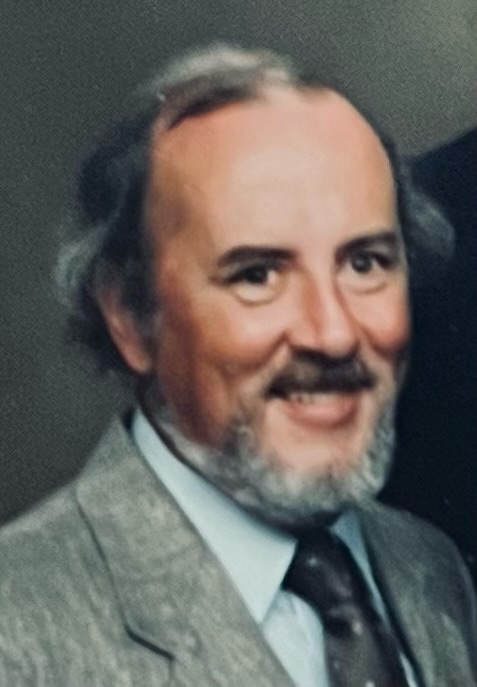
Photo courtesy Menard family
Russell R. Menard, professor emeritus of early American history at the University of Minnesota and a pioneering member of the Chesapeake School, passed away on November 16, 2023, after a stay in hospice.
Rus earned his bachelor’s degree at the University of Delaware and his PhD at the University of Iowa. He worked for two years at the St. Mary’s City Historic Commission, then held a fellowship at what is now the Omohundro Institute of Early American History and Culture at William and Mary before joining the Minnesota faculty in 1976.
It was during his time in Maryland and Virginia that he began his decades-long collaboration with other historians who worked on the 17th-century Chesapeake, most notably Lois Green Carr and Lorena S. Walsh. The innovative work of the “Chesapeake Mafia,” as they informally were known, helped transform the field of early American history, shifting attention away from New England to the tobacco plantations of Maryland and Virginia. Their solution to the paucity of diaries and letters from the region was to embrace the methods of the era’s “new social history,” quantifying empirical evidence found in wills, probate inventories, and other records to re-create the worlds of early English colonists and enslaved Africans. This research appeared in more than 30 articles that Rus authored, alone or with collaborators. Among the noteworthy was “From Servants to Slaves: The Transformation of the Chesapeake Labor System” (Southern Studies, 1977), which argued that the rise of African slavery in the region was linked to the diminishing supply and rising prices of indentured servants. He also published important articles on the demography of English colonists and enslaved Africans. This research culminated in the publication of Robert Cole’s World: Agriculture and Society in Early Maryland (Univ. of North Carolina Press, 1991), co-authored with Carr and Walsh, which won the Alice Hanson Jones Prize from the Economic History Association in 1994.
Beyond his pioneering demographic work, Rus was best known as an economic historian and the co-author (with John McCusker) of The Economy of British America: 1607–1789 (Univ. of North Carolina Press), first published in 1985. In a 2002 retrospective in Reviews in America, Peter Coclanis declared, “It is difficult to overstate the impact The Economy of British America has made on a generation of historians.” The book remains a foundational text.
Rus’s research focus shifted further south during the 1980s and 1990s. He published important articles on slavery and economic growth of colonial South Carolina, followed by Sweet Negotiations: Sugar, Slavery, and Plantation Agriculture in Early Barbados (Univ. of Virginia Press, 2006). This short but influential work upended traditional narratives on the rise of the sugar plantation complex, arguing that the transition to sugar in Barbados was more gradual than scholars assumed and that much of the financing came from English, not Dutch, merchants.
Rus’s research productivity on Barbados and the Caribbean was challenged by a stroke he suffered while working in London during the summer of 1993. Although physically limited, he remained an active scholar and a collaborator, working independently and with graduate students, including the two of us, on various projects. He also continued to teach until his retirement in 2012. Besides introducing countless Minnesota undergraduates to the world of early America through his popular survey, The Peoples of Early America, Rus supervised or co-supervised 19 doctoral dissertations and served as a mentor to many other graduate students.
Rus’s commitment to social science history led him to partner with Steven Ruggles in launching the Historical Census Projects at Minnesota in the late 1980s, now part of the Institute for Social Research and Data Innovation. These projects transformed historical demographic research and public access to high-quality, machine-readable census materials. The center also served as intellectual and social hub for students from a broad range of fields. Rus was eager to cultivate this community, connecting students to scholarship, challenging them in debate, and offering his views on the Timberwolves and Gophers (Rus was a huge basketball fan). Rus thought about history to the very end, imagining new ways to conceive of the past to better understand social change. He is survived by his wife Kathleen, two children, and six grandchildren.
Matthew Mulcahy
Loyola University Maryland
David Ryden
University of Houston–Downtown
Tags: In Memoriam North America Economic History Social History

This work is licensed under a Creative Commons Attribution-NonCommercial-NoDerivatives 4.0 International License. Attribution must provide author name, article title, Perspectives on History, date of publication, and a link to this page. This license applies only to the article, not to text or images used here by permission.
The American Historical Association welcomes comments in the discussion area below, at AHA Communities, and in letters to the editor. Please read our commenting and letters policy before submitting.
Comment
Please read our commenting and letters policy before submitting.






